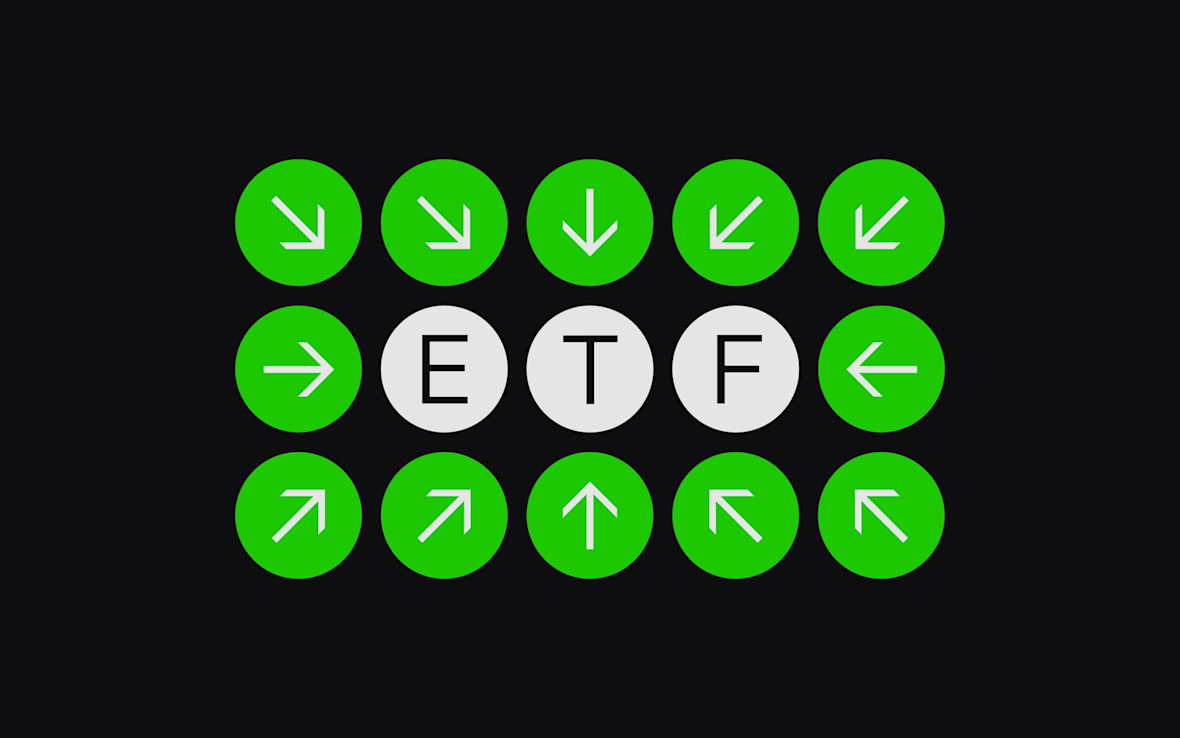Coinbase
How to Buy Ethereum
Good news! You can buy Ethereum on Coinbase's centralized exchange. We've included detailed instructions to make it easier for you to buy Ethereum.
Read more



Create a Coinbase account to buy and sell Ethereum on the most secure crypto exchange.
Ethereum is on the rise this week. ↗
The price of Ethereum has decreased by 0.42% in the last hour and increased by 2.80% in the past 24 hours. Ethereum’s price has also risen by 3.15% in the past week. The current price is $3,324.00 per ETH with a 24-hour trading volume of $28.93B. Currently, Ethereum is valued at 29.59% below its all time high of $4,721.07. This all-time high was the highest price paid for Ethereum since its launch.
The current circulating supply of Ethereum is 120,501,751.986 ETH which means that Ethereum has as total market cap of 120,501,751.986.
Market cap
$400.0B
Volume (24h)
$28.9B
Circulating
120.5M ETH
Hold time
43 days
Popularity
#2
All time high
$4,721.07
1 hour
↘ 0.42%
1 day
↗ 2.8%
1 week
↗ 3.15%
2 weeks
↘ 3.39%
1 month
↗ 0.08%
1 year
↗ 51.52%
Performance
↗ 53.31%
Vs. Market
↘ 32.09%
Vs. BTC
↘ 44.06%
Jan 20, 2025
Vitalik Buterin suggests the Ethereum Foundation is considering staking its ETH holdings. (source)
Investors Throw Billions at Bitcoin and Ethereum ETFs Over Trump 'Euphoria'. (source)
The ether-bitcoin ratio dropped to the lowest since 2021 as incoming President Trump seen fueling BTC popularity. (source)
Ethereum Foundation moves $165M in ETH to participate in DeFi. (source)
Jan 17, 2025
Ethereum developers aim for Pectra mainnet upgrade in March. (source)
Jan 16, 2025
30% of Ethereum validators signal higher block gas limit, data shows. (source)
Ethereum is a decentralized computing platform that uses ETH (also called Ether) to pay transaction fees (or “gas”). Developers can use Ethereum to run decentralized applications (dApps) and issue new crypto assets, known as Ethereum tokens.
Ethereum (ETH) is a decentralized blockchain platform that aims to support a global network of applications. Its goal is to enable users to build and run software resistant to censorship, fraud, and downtime. According to the Ethereum Foundation, Ethereum offers more than value transfer—it provides a framework for creating tools, games, and applications that prioritize user privacy and autonomy. As of December 2024, Ethereum is one of the largest blockchain networks by market capitalization and serves as a foundation for various decentralized finance (DeFi) services, applications, and digital assets. The network is powered by its native cryptocurrency, Ether, which is used within the Ethereum network for various operations, making it an integral part of the system. Its utility frequently influences the Ethereum price.
Ethereum operates on a blockchain—a decentralized ledger that records transaction histories. Ether (ETH), the network's native digital asset, is used to perform transactions and computational tasks. Unlike Bitcoin, which primarily focuses on transferring value, Ethereum aims to support a range of decentralized applications (DApps). Initially, Ethereum used a proof-of-work (PoW) model for network security, relying on computational power to validate transactions. In 2022, Ethereum transitioned to a proof-of-stake (PoS) model, where validators stake ETH to confirm transactions and maintain the network, with the goal of reducing the reliance on energy-intensive mining.
Ethereum aims to supports a wide range of decentralized applications. Developers can, for example, create dApps for industries like gaming, digital identity, financial services, and supply chain management. The network also aims to power non-fungible tokens (NFTs), unique digital assets that represent ownership of items such as art, music, and in-game assets. Ethereum’s smart contract functionality allows for innovation across industries, enabling tools for decentralized finance, tokenized assets, and more.
Ethereum was introduced in 2013 by Vitalik Buterin, a programmer and co-founder of Bitcoin Magazine. Buterin proposed a blockchain capable of handling more complex tasks than Bitcoin, such as running smart contracts. With support from co-founders like Gavin Wood, the project raised $18 million through a pre-launch token sale in 2014. The Ethereum blockchain was publicly launched in July 2015, introducing smart contract capabilities. Over the years, Ethereum has undergone multiple upgrades to enhance its functionality and security. In 2022, the network transitioned from proof-of-work to proof-of-stake to improve efficiency and reduce environmental impact. This evolution has solidified its role in blockchain technology, with these milestones often influencing the Ethereum price by shaping its utility and market appeal.
Bitcoin and Ethereum are both decentralized, open-source blockchains, but their purposes differ. Bitcoin is primarily designed for peer-to-peer value transfer and is often viewed as a digital alternative to traditional payment systems. Ethereum, in contrast, supports programmable applications through smart contracts, enabling decentralized apps (dApps) and tools like stablecoins and DeFi platforms. The networks also differ in their consensus mechanisms. Bitcoin uses proof-of-work (PoW), while Ethereum transitioned to proof-of-stake (PoS) in 2022, where validators secure the network by staking ETH.
Staking Ethereum involves participating in its proof-of-stake system by locking ETH to validate transactions. validators play a role in maintaining the network and receive rewards for their participation. To stake, you need ETH and a device that meets the technical requirements for running validator software. For those not interested in handling the technical setup, certain platforms offer simplified staking options. Staking helps strengthen the network while providing participants with incentives for their involvement.
Like Bitcoin, Ethereum's price is based on a global marketplace of supply and demand. Its price can be volatile in the short term as demand overwhelms supply and vice versa. Over the years, Ethereum has had a dynamic price history, with its price today reflecting ongoing developments and market demand. At times, Ethereum’s live price has seen notable spikes, reaching an all-time high in November 2021 when its value soared above $4,800. The price now varies as it responds to market trends, technological progress, and adoption rates.
By creating an account on Coinbase or an increasing number of other reputable financial technology companies, you can buy, send, and receive Ethereum. These platforms allow you to purchase Ethereum easily while also providing tools to check its price today and track its live price. Whether you’re curious about Ethereum's price now or comparing it to its all-time high, these services help you stay updated on Ethereum's worth at all time.
Ethereum’s price is influenced by global supply and demand in a decentralized market. Factors such as blockchain upgrades, adoption trends, and market speculation can cause its price today to fluctuate significantly. Additionally, Ethereum’s role in powering decentralized finance (DeFi) and NFTs adds to its volatility as these sectors evolve.
The amount of Ethereum you receive for $1 depends on its live price. For example, if Ethereum is priced at $2,000, $1 would get you 0.0005 ETH. Since Ethereum’s price now changes frequently, the amount you can receive will vary with market conditions.
The largest holders of Ethereum include decentralized exchanges, smart contract protocols, and a variety of institutional and individual investors. The Ethereum Foundation, the nonprofit supporting the Ethereum project, also holds a significant amount of ETH. Unlike Bitcoin, Ethereum does not have a single large entity like Satoshi Nakamoto owning a substantial portion.
As of November 2024, there are approximately 120 million ETH in circulation, and unlike Bitcoin, Ethereum does not have a fixed supply cap. However, upgrades like EIP-1559 introduced mechanisms to reduce the issuance rate of new ETH by burning transaction fees, gradually reducing the overall supply growth and potentially impacting the Ethereum price.
Ethereum Exchange-Traded Funds (ETFs) are financial instruments that track Ethereum's price and trade on traditional stock exchanges. These ETFs allow individuals to gain exposure to Ethereum’s price movements without directly managing or storing ETH. They are typically used by those who prefer traditional trading platforms over digital wallets.
Ethereum can be stored in digital wallets, which come in various forms. Hardware wallets offer offline storage, adding an extra layer of security. Software wallets are apps or online platforms that provide easy access for sending and receiving ETH. When choosing a wallet, consider your balance between accessibility and security, especially for long-term storage.
EIP-1559 is an Ethereum improvement proposal implemented in August 2021. It introduced a fee-burning mechanism where a portion of every transaction fee is removed from circulation, reducing the overall issuance of ETH. This upgrade also made transaction fees more predictable for users, improving the network's usability and long-term economic model.
Ethereum is secured through its proof-of-stake (PoS) consensus mechanism. Validators stake ETH to confirm transactions and maintain the blockchain. The network’s decentralized structure and cryptographic protocols protect it from tampering or censorship. Validators are incentivized to act honestly through staking rewards and penalties for breaking the protocol rules.
The Ethereum Merge, completed in September 2022, was a major upgrade that transitioned the network from proof-of-work (PoW) to proof-of-stake (PoS). This shift replaced energy-intensive mining with validators staking ETH to secure the blockchain. The Merge aimed to improve the network’s energy efficiency while maintaining its functionality for decentralized applications and services.
We update our Ethereum to USD currency in real-time. Get the live price of Ethereum on Coinbase.
The current market cap of Ethereum is $399.96B. A high market cap implies that the asset is highly valued by the market.
The all-time high of Ethereum is $4,721.07. This all-time high is highest price paid for Ethereum since it was launched.
Over the last 24 hours, the trading volume of Ethereum is $28.93B.
Assets that have a similar market cap to Ethereum include Bitcoin, Tether, BNB, and many others. To see a full list, see our comparable market cap assets.
The current circulating supply of Ethereum is 121 million.
The median time that Coinbase customers hold Ethereum before selling it or sending it to another account or address is 43 days.
Ethereum ranks 2 among tradable assets on Coinbase. Popularity is currently based on relative market cap.
Currently, 84% of Coinbase users are buying Ethereum. In other words, 84% of Coinbase customers have increased their net position in Ethereum over the past 24 hours through trading.
Yes, Ethereum is currently available on Coinbase’s centralized exchange. For more detailed instructions, check out our helpful how to buy Ethereum guide.
Date | Price | Change |
|---|---|---|
Today (January 22, 2025) | $3,324.00 | 3.39% |
24 hours ago (January 21, 2025) | $3,232.20 | 2.80% |
1 week ago (January 15, 2025) | $3,224.92 | 3.15% |
1 month ago (December 22, 2024) | $3,328.37 | 0.08% |
1 year ago | $2,165.01 | 51.52% |
Published on February 5, 2024
Ethereum stands as the dominant player in the realm of smart contract platforms, boasting the largest base of users and developers. This widespread developer adoption fosters a robust environment that could nurture growth and innovation.
The Ethereum network recently upgraded to EIP-1559, meaning that every time someone makes a transaction, a small part of the transaction fee is destroyed or "burned". Over time, fewer Ethereum coins exist, potentially increasing the value of the remaining ones.
Ethereum’s integration of Layer 2 solutions (L2s) amplifies its capacity, potentially escalating the network’s transaction processing to 100,000 transactions per second (TPS). This enables it to accommodate a broader range of applications and higher transaction volumes.
Published on February 5, 2024
Despite Ethereum’s significant market capitalization, it faces intensifying competition from newer networks, prioritizing faster and more cost-effective solutions.
Notably, Ethereum’s transaction fees can spike during peak times, potentially dissuading users and developers from utilizing the network for smaller transactions or applications.
Critics argue that Ethereum’s adoption of a rollup-centric Layer 2 (L2) strategy has led to a fragmented ecosystem, where assets are spread across layers and platforms, complicating the user experience. They suggest that a unified, monolithic network, such as Solana, could offer a more streamlined and user-friendly experience.
Information is provided for informational purposes only and is not investment advice. This is not a recommendation to buy or sell a particular digital asset or to employ a particular investment strategy. Coinbase makes no representation on the accuracy, suitability, or validity of any information provided or for a particular asset.
Earn free crypto after making your first purchase. Terms apply.

Sum of median estimated savings and rewards earned, per user in 2021 across multiple Coinbase programs (excluding sweepstakes). This amount includes fee waivers from Coinbase One (excluding the subscription cost), rewards from Coinbase Card, and staking rewards.
Conversion Table
1 Ethereum (ETH) to Canadian Dollar (CAD)
CA$4,754.34
1 Ethereum (ETH) to Japanese Yen (JPY)
¥520,136.00
1 Ethereum (ETH) to Indian Rupee (INR)
₹287,566.77
1 Ethereum (ETH) to Real (BRL)
R$20,019.87
1 Ethereum (ETH) to Euro (EUR)
€3,190.51
1 Ethereum (ETH) to Nigerian Naira (NGN)
NGN 5,154,694.85
1 Ethereum (ETH) to South Korean Won (KRW)
₩4,770,998.67
366,656 unique individuals are talking about Ethereum and it is ranked #7 in most mentions and activity from collected posts. In the last 24 hours, across all social media platforms, Ethereum has an average sentiment score of 3.4 out of 5. Finally, Ethereum is becoming less newsworthy, with 25 news articles published about Ethereum. This is a 23.53% decrease in news volume compared to yesterday.
On Twitter, people are mostly neutral about Ethereum. There were 38.93% of tweets with bullish sentiment compared to 5.5% of tweets with a bearish sentiment about Ethereum. 55.56% of tweets were neutral about Ethereum. These sentiments are based on 201869 tweets.
On Reddit, Ethereum was mentioned in 2428 Reddit posts and there were 3998 comments about Ethereum. On average, there were more upvotes compared to downvotes on Reddit posts and more upvotes compared to downvotes on Reddit comments.
Powered by LunarCrush
Contributors
366,656 people
Posts
143,902 posts
Dominance
1.48%
Volume rank
#7
Average Sentiment
3.4 out of 5
News Articles
25
Tweet Count
201,869 people
Sentiment
38.93%
Bullish
55.56%
Neutral
5.5%
Bearish
Posts
2,428
Comments
3,998
Post Score
12,985
Comment Score
13,893
Coinbase
How to Buy Ethereum
Good news! You can buy Ethereum on Coinbase's centralized exchange. We've included detailed instructions to make it easier for you to buy Ethereum.
Read more

Coinbase
How to Stake Ethereum
Ethereum is currently available to stake on Coinbase’s centralized exchange, subject to locations where staking is allowed.
Read more


The Future of Ethereum: What to expect in 2025
COINBASE BYTES • JAN 14, 2025

Investors are still warming up to Ethereum ETFs
COINBASE BYTES • JAN 21, 2025
Learn how we collect your information by visiting our Privacy Policy.
A selection of cryptocurrencies in the top 50 by market cap.
Of all the assets on Coinbase, these 12 are the closest to Ethereum in market cap.
A selection of other relevant cryptocurrencies
Certain content has been prepared by third parties not affiliated with Coinbase Inc. or any of its affiliates and Coinbase is not responsible for such content. Coinbase is not liable for any errors or delays in content, or for any actions taken in reliance on any content. Information is provided for informational purposes only and is not investment advice. This is not a recommendation to buy or sell a particular digital asset or to employ a particular investment strategy. Coinbase makes no representation on the accuracy, suitability, or validity of any information provided or for a particular asset. Prices shown are for illustrative purposes only. Actual cryptocurrency prices and associated stats may vary. Data presented may reflect assets traded on Coinbase’s exchange and select other cryptocurrency exchanges.